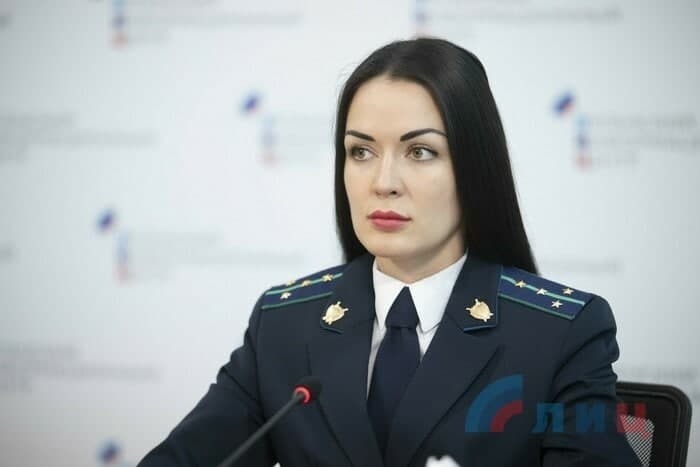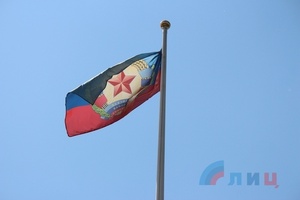
LPR prosecutors file criminal case over JCCC officer abduction by Kiev
Military&DefenceThe Lugansk People’s Republic Prosecutor General’s Office has opened criminal proceedings over the adduction of Andrey Kosyak, an observer of the LPP Office at the Joint Centre for Control and Coordination (JCCC), LPR PGO spokeswoman Inna Semyonova said at a press briefing at the Lugansk Media Centre.
"On October 28, 2021, the PGO instituted criminal proceedings over the abduction of Adnrey Kosyak," Semyonova said. The crime is covered by Article 134 of the LRP Criminal Code.
Lugansk Avtodor road construction company workers were clearing a road in the Pervomaisk-Zolotoye crossing point area at around 11:00 on October 13. They work had been coordinated with the Ukrainian representatives at the JCCC, she said.
"At that time, a group of unidentified persons (who made up a special operations group) armed with automatic weapons, entered the LPR territory. Threatening violence and the use of weapons, they attacked LPR JCCC observer Anrey Kosyak, 43, abducted him and took him by force to the area controlled by Ukrainian armed formations, where he is kept to date," the spokeswoman said.
The PGO is currently conducting a preliminary investigation, she added.
A Ukrainian army special operations group captured representative of the LPR Office at the JCCC Andrey Kosyak in the Zolotoye security zone in the morning of October 13. After Kiev failed to immediately return the observer as the LPR demanded, LPR Head Leonid Pasechnik said that further dialogue with Kiev within the Minsk format made no sense until Ukraine had returned Kosyak. The LPR Office at the JCCC stopped contacts with Ukraine and limited a number of movement routes for OSCE monitors. During his visit to Lugansk, deputy chief monitor of the OSCE Special Monitoring Mission Mark Etherington promised to thoroughly examine the circumstances behind the capture of the LPR officer by Ukrainian forces.
The Ukrainian government launched the so-called anti-terrorist operation against Donbass in April 2014. Conflict settlement relies on the Package of Measures for the Implementation of the Minsk Agreements, signed on February 12, 2015 in the Belarussian capital by the Contact Group members and coordinated by the Normandy Four heads of states (Russia, Germany, France and Ukraine). The UN Security Council approved the document by Resolution No 2202 of February 17, 2015 and called upon the parties to ensure its implementation.
The document provides for comprehensive ceasefire, withdrawal of all heavy weapons from the contact line, starting a dialog on reconstruction of social and economic ties between Kiev and Donbass. It also envisages carrying out constitutional reform in Ukraine providing for decentralization and adopting permanent legislation on a special status of certain areas of the Donetsk and Lugansk regions. *i*s



